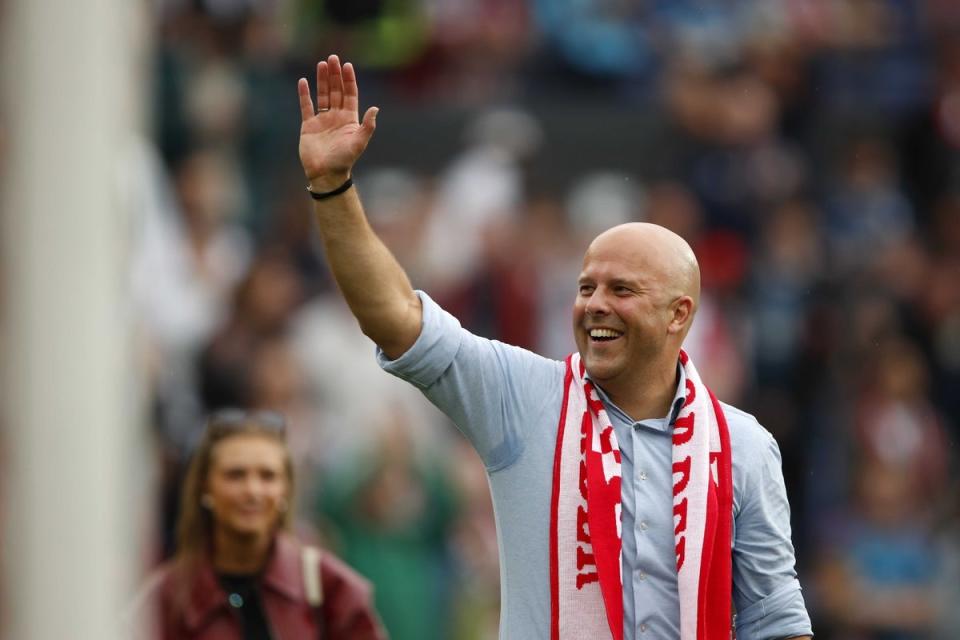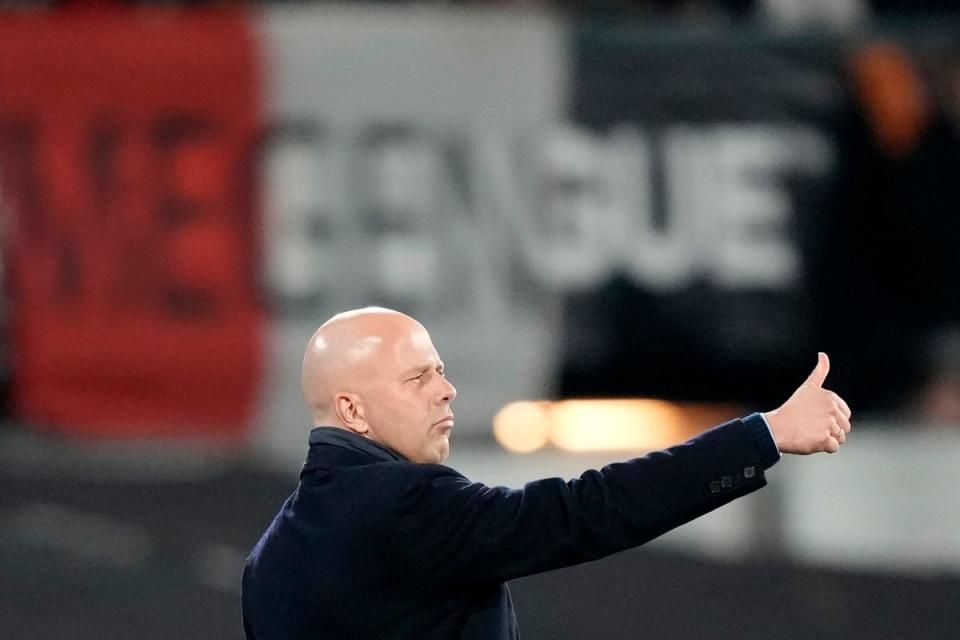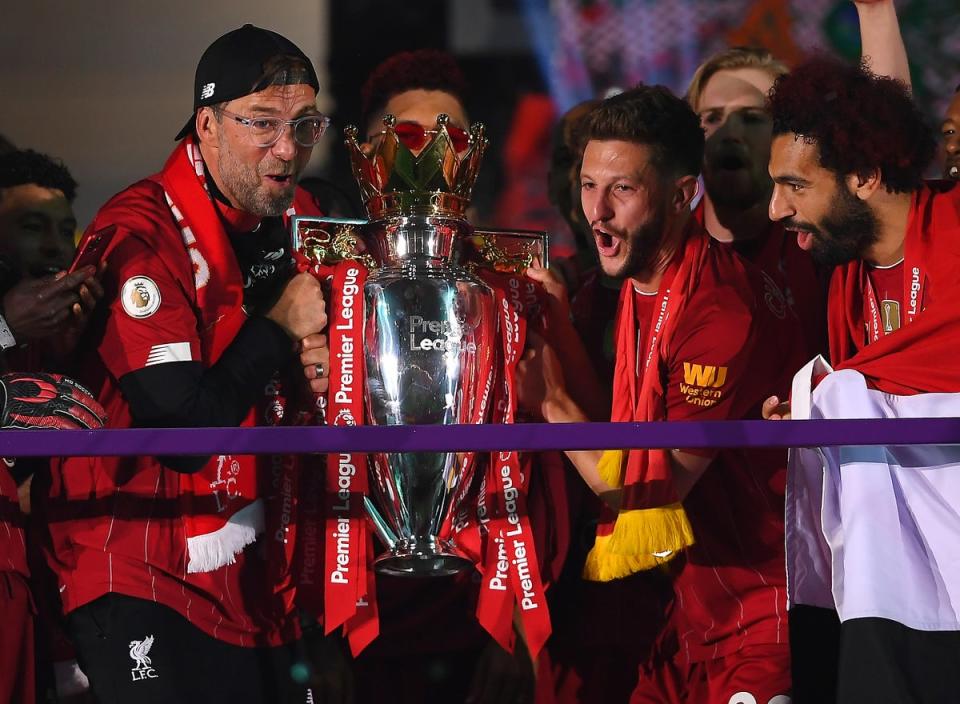The Kloppian traits that made Liverpool gamble on Arne Slot
Jurgen Klopp is giving it up but he declared managing Liverpool is “the best job in the world”. And if he is unashamedly biased, one interpretation is that there are times when Klopp made it seem so. Yet when it came to replacing him, the candidates on the shortlist boasted lesser achievements than in 2015, when Liverpool were 10th, a few months after they had lost 6-1 at Stoke, when they had not played a Champions League knockout tie for six years. Then it pitted Carlo Ancelotti against Klopp. His replacement will not arrive with the reputation as the best manager in the world.
Now, instead of the coronation of Xabi Alonso many wanted to see, Arne Slot has emerged by stealth to become the German’s successor. There are superficial similarities with Klopp – each an undistinguished player and overachieving manager in his homeland – but a comparison does not flatter the Dutchman. He has won one Eredivisie title with Feyenoord to Klopp’s two in the Bundesliga with Borussia Dortmund; the European final he has reached is the Conference League, not the Champions League.
And yet Liverpool’s job interviews were never likely to simply consist of asking candidates to put their medals on the table. The new brains trust of the returning Michael Edwards and the incoming sporting director Richard Hughes had other criteria; in his first spell at Anfield, Edwards acquired a reputation as a master of recruitment courtesy of intelligent use of the data, an eye for a player and a habit of acting quickly and decisively. Slot will provide a test if he is as fine a judge of a manager.

Certainly he can tick plenty of boxes. Feyenoord offers a comparison with Dortmund and, indeed, Liverpool: it offered experience of the pressure of managing big clubs in working-class cities, but with little recent experience of winning the league title. Like Klopp in Germany, Slot punched through a glass ceiling and triumphed on a budget. Indeed, he will leave Feyenoord with a sizeable transfer-market profit and, with Champions League football again next season, that sort of revenue stream that is imperative for Liverpool.
His recruitment policy in the Netherlands tallied with Liverpool’s preferences: to buy players on the up, rather than proven winners, and rely on a manager with a capacity to improve players. Slot, stripped of his best players in first 2022 and then 2023 and showing his expertise at annual rebuilds, is unlikely to have to sell as often but Liverpool’s self-sustaining model means they can be outspent, whether in terms of fees or wages. They have looked to coaching and cleverness to bridge the financial gap. Slot did that in his homeland: Feyenoord beat Ajax 6-0 last month but the Amsterdam club spent more last summer than he did in four years in Rotterdam. There are obvious parallels with Erik ten Hag, who took Ajax to a Champions League semi-final and has had decidedly mixed fortunes in England but Slot never paid more than £8m for a player; he worked with lesser resources at Feyenoord.

He has often cited Pep Guardiola as an influence, more than Klopp. Yet the reality is that no one plays exactly like Klopp; equally, Liverpool required someone with many similar beliefs. Slot has used inverted full-backs, which could point to a future for Trent Alexander-Arnold. His preference for 4-3-3 or 4-2-3-1 offered continuity; Sporting’s manager Ruben Amorim was considered, but his fondness for 3-4-3 risked leaving some Liverpool players redundant under a new regime.
Feyenoord figure prominently in pressing charts, winning possession back more in the final third than any team in Europe’s top five leagues over the past three seasons; that approach is not merely confined to the Eredivisie, but in Europe, where they can be underdogs. In their run to the 2022 Conference League final, the centre-forward Cyriel Dessers scored three goals from high pressing alone. Now the potent striker is the Mexican sensation Santiago Gimenez; given Klopp’s capacity to get goals from his wide forwards, however, Liverpool may have noted that winger Luis Sinisterra had by far the most prolific season of his career under Slot.

This conforms to a Kloppian trait: plenty a Feyenoord or AZ Alkmaar footballer has played far better for Slot than anyone else, just as some of Klopp’s charges have only looked brilliant under the German. That presents a warning in itself for the newcomer.
And it is undeniable that Liverpool’s squad represents a jump up for Slot: more gifted, more illustrious, more expensive. Part of his challenge will be proving he can operate at a more elevated level. A manager who turned down Tottenham last summer has long had the sense he would gravitate to a grander stage; Liverpool eschewed the more established and ignored ostensibly bigger names to pick on potential, just as they do for players. It is, though, only a few weeks since Klopp described Alonso as the standout manager of the next generation. Slot may want to prove him wrong.

